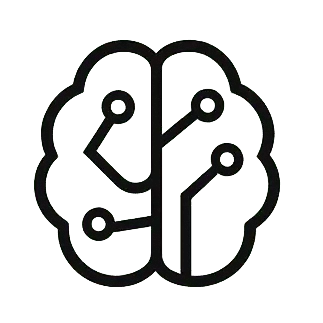TLDR: Artificial intelligence continues its explosive growth, transforming sectors from healthcare and education to business and creative industries. Recent developments include Microsoft’s highly accurate medical AI, Google’s expansion of AI tools to younger users, and new platforms for lead generation. However, this rapid advancement also brings challenges, such as concerns over AI’s impact on traditional news consumption, the need for workforce retraining, and ongoing debates about AGI’s societal implications and governance.
The landscape of artificial intelligence is undergoing a profound transformation, with recent developments on July 5, 2025, highlighting its pervasive influence across diverse sectors globally. From groundbreaking medical diagnostics to innovative educational tools and strategic business applications, AI is reshaping industries at an unprecedented pace.
In a significant leap for healthcare, Microsoft has unveiled a new medical AI tool demonstrating remarkable diagnostic accuracy, reportedly outperforming experienced physicians by up to four times. This system employs a step-by-step reasoning model to analyze symptoms, test results, and case histories, aiming to provide robust clinical decision support. While still in testing and primarily relying on multiple-choice questions, this innovation holds immense promise, particularly for low-resource settings and overburdened healthcare systems seeking smart diagnostic shortcuts.
Education is also seeing a major AI integration, with Google expanding access to over 30 of its Gemini-powered AI tools, including NotebookLM, to users under 18 through Google Classroom. This initiative aims to enhance learning by assisting with text summarization, question generation, study guides, and podcast-style audio overviews. Concurrently, teachers with Google Workspace accounts will gain a dedicated Gemini tab to streamline tasks like drafting lesson plans, math problems, and school emails.
Beyond traditional applications, AI is increasingly blurring the lines between creativity and code. Algorithms are now capable of generating podcast-style classroom lessons and orchestrating art-infused storytelling experiences. The emergence of AI-generated music bands, some garnering over 9 lakh streams, raises intriguing questions about authenticity and disclosure in the creative sphere. Furthermore, a research-phase bot suggests a future where machines act as companions, with their ability to ‘read the room’ becoming as crucial as dexterity in eldercare, education, and hospitality sectors.
In the business realm, LeadConnect Pro has launched its AI-driven Visitor Intelligence platform, designed to combat the significant problem of lost leads. This innovative system identifies up to 55% of previously anonymous website visitors, generating detailed contact profiles with up to 40 data points. Kenn Rivers, CEO and Co-founder of LeadConnect Pro, emphasized the platform’s impact, stating, ‘Knowledge changes everything when you can identify lost leads and turn them into hot prospects. Our system gives businesses the power to contact these prospects while they’re still interested, instead of letting them disappear forever.’ The company aims to reverse the trend where an estimated 97% of website visitors leave without making contact.
The broader implications of AI’s rapid ascent are also coming into sharper focus. OpenAI CEO Sam Altman has suggested that Artificial General Intelligence (AGI) could enter the workforce as early as this year, capable of thinking, deciding, and acting, while also cautioning about potential shifts in wealth and power distribution. This rapid progress is reflected in market forecasts, with Gartner projecting global spending on generative AI to reach an astounding $644 billion in 2025, a 76% increase over the previous year.
However, this growth is not without its challenges. European publishers have voiced concerns to the EU, alleging that Google’s AI Overviews are reducing traffic to their sites by providing quick summaries, leading to a reported 69% ‘zero-click’ searches. They are advocating for legal rights to opt out of AI content scraping. Governments are also grappling with AI’s strategic implications; the UK is reportedly pushing its leading AI hub, the Alan Turing Institute, to prioritize national defense and sovereign AI capabilities.
Corporate leaders are being urged to adapt swiftly. Dan Priest, PwC’s Chief AI Officer, warns that 40% of business models may not survive the next decade without significant AI adoption. He stresses the importance of retraining employees and integrating human oversight for long-term success. The demand for AI skills is surging, with professionals in areas like neural networks and deep learning earning up to 25% more, and demand growing 3.5 times faster than average since 2016.
Regional advancements are also notable, with Costa Rica emerging as a leader in AI adoption among small and medium-sized enterprises (SMEs) in Latin America. Approximately 50% of Costa Rican SMEs are now utilizing AI tools for tasks such as customer service chatbots and supply chain optimization. Despite this progress, only 1% of SME leaders in Costa Rica feel they have fully mastered AI, highlighting the ongoing need for training and workflow redesign to unlock AI’s full potential.
Also Read:
- The Psychological Toll of AI: Kindness and Connection Masking Risks of Dependency and Delusion
- Nvidia-Backed CoreWeave’s Explosive Growth Disrupts AI Cloud Market
Globally, the push for AI infrastructure is evident, with the South Australian government investing $28 million in clean-powered AI data centers, aiming to run advanced AI systems on wind and solar energy. These centers are envisioned to support medical voice transcription, planning approvals, and public service modernization. As AI firmly enters the mainstream, with a June 2025 survey indicating 61% of American adults have used an AI tool in the past six months, the debates around governance, ethics, and societal impact continue to intensify, with discussions ranging from international AI watchdog agencies to new regulations on algorithmic transparency and watermarking of AI-generated media.


